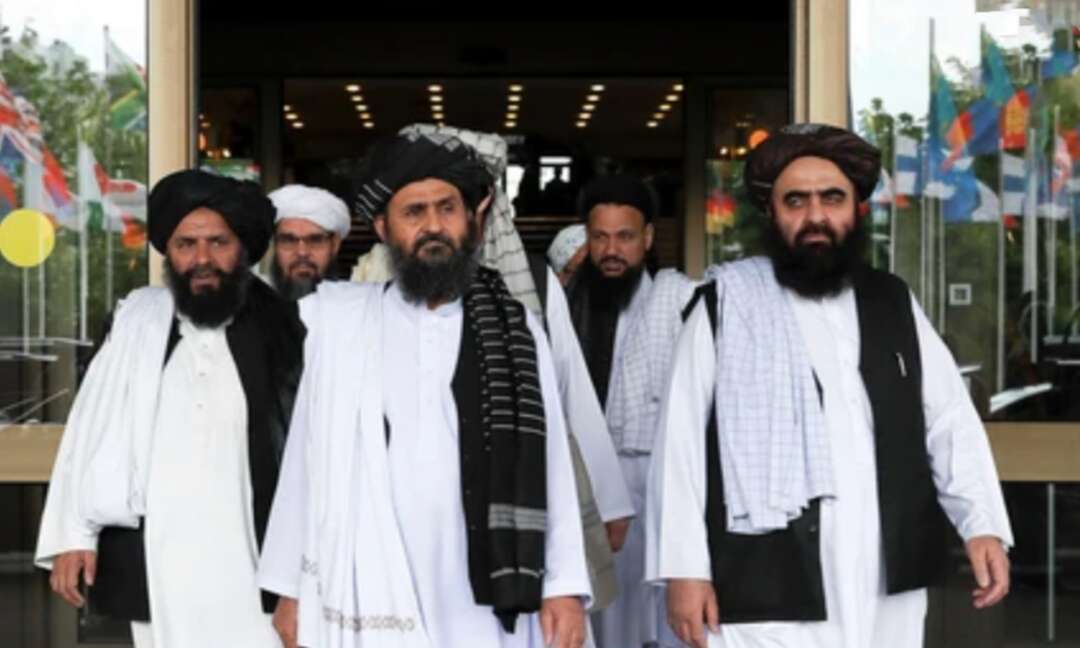-
Taliban bans VOA and BBC news programs in Afghanistan

The Voice Of America reported, the Taliban have barred private television stations in Afghanistan from airing Voice of America (VOA) and British Broadcasting Corporation (BBC) news programs.
The ban is the latest in a series of restrictions the Islamist group has imposed on Afghan media to stifle freedom of expression since taking control of the country last August.
VOA, which is headquartered in Washington, has swiftly denounced the Taliban for taking its programs off air.
“We ask the Taliban to reconsider this troubling and unfortunate decision,” Acting VOA Director Yolanda Lόpez said in a statement Sunday. “The content restrictions that the Taliban are attempting to impose are antithetical to freedom of expression that the people of Afghanistan deserve,” said Lόpez.
The American broadcaster produces a half-hour news bulletin in Pashto and Dari, the two main languages spoken in Afghanistan, five days a week for its Afghan partners, TOLO news and Shamshad TV.

Lόpez added “while we are disappointed and saddened by the Taliban’s orders to our television affiliate partners in the country, our commitment to providing factual information to the people of Afghanistan is one that the Voice of America will continue on television, radio, and the internet on www.pashtovoa.com and www.darivoa.com, as well as on social media.”
The head of languages at BBC World Service also called on the Taliban to immediately remove the ban on its news bulletins.
Taliban bans women from flights without a male guardian
"The BBC's TV news bulletins in Pashto, Persian and Uzbek have been taken off air in Afghanistan, after the Taliban ordered our TV partners to remove international broadcasters from their airwaves," Tarik Kafala confirmed in a statement Sunday.
Kafala said: “This is a worrying development at a time of uncertainty and turbulence for the people of Afghanistan.”
He noted that “more than six million Afghans consume the BBC’s independent and impartial journalism on TV every week and it is crucial they are not denied access to it in the future.”
A Taliban information ministry spokesman, when asked for his comments on whether they have ordered Afghan channels to remove the international broadcasters from their airways, told VOA he would collect information and get back.
Female foreign ministers call Taliban to reverse their decision on girls’ education
Domestic and international critics say media and freedom of speech have worsened under Taliban rule in Afghanistan.
Afghan journalists have been repeatedly detained and subjected to violence by security forces. The interim Taliban government has issued a set of “journalism rules,” including media compliance with the group's interpretation of Islamic doctrine on “enjoying good and forbidding wrong.”
In December, Reporters Without Borders (RSF) released a survey, showing that at least 40% of Afghan media outlets have disappeared and more than 80% of women journalists lost their jobs since the Taliban takeover of the country.
UK foreign office pledges to release Afghanistan cash after aid chief pleas
The research found that the environment for journalists in the capital, Kabul, and the rest of the country has become “extremely fraught.” Critics say conditions for local journalists to work freely have since further deteriorated.
Hundreds of journalists have also left Afghanistan since August for fear of Taliban reprisals or because of problems associated with practicing their profession under the new rulers.
According to the RSF survey, more than 6,400 journalists and media employees have lost their jobs since August 15 when the Taliban seized control of the Afghan capital, Kabul.
The ban on VOA and BBC programs comes as the Taliban are under increased international pressure and condemnation for keeping schools shuttered for teenage Afghan girls.
At least 22 killed as twin earthquakes struck Afghanistan
The Taliban reopened secondary schools after the winter break Wednesday, March 23, which also marks the start of the school year for most Afghan provinces.
But the de facto authorities at the last minute decided against allowing girls above the sixth grade to return to the classroom, citing a lack of arrangements for them, including school uniforms, in accordance with Sharia or Islamic law.
Afghan women’s rights activists and girls took to the streets Saturday to demand the Taliban reopen schools to girls. They have pledged to launch a wave of countrywide protests if authorities fail to open girls’ schools within a week.
Taliban fighters pepper spray women protesters calling for rights to work and education
The international community has not yet recognized the Taliban as the legitimate rulers of Afghanistan, citing continued concerns over human rights, terrorism and a lack of inclusivity in the male-only government in Kabul.
Source: voa
You May Also Like
Popular Posts
Caricature
opinion
Report
ads
Newsletter
Subscribe to our mailing list to get the new updates!






















